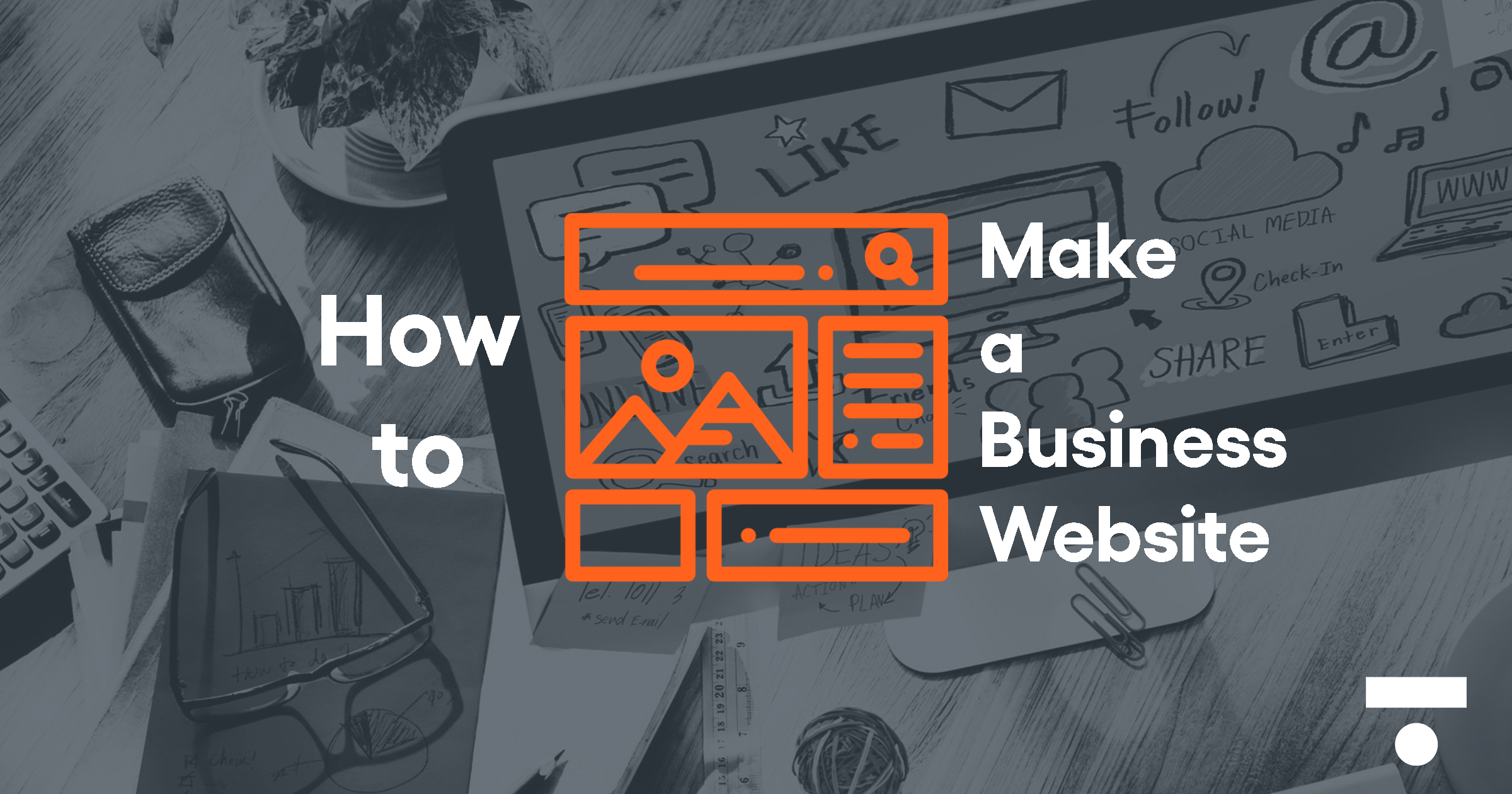The internet certainly isn’t new, but for a fledging business, maintaining an effective online presence is more important than ever before. In this tech.mn original series, writer Laura Beier spoke with industry professionals who are tasked with creating beautiful and functional websites and the founders who use them to help their businesses flourish.
Just as a website is built, we’ll be building this piece up section by section over the course of the week. Don’t miss out on the valuable advice and insight we’ve collected.
How to Make a Business Website Release Schedule:
- Tuesday, November 10 — Why is a Great Website Important?
- Thursday, November 12 — What Are the Main Components of a Great Website?
- Monday, November 16 — How Do You Build a Great Website?
- Wednesday, November 18 — Insight From Founders
![]()
Before someone goes to your store, calls for more information, or even thinks about buying your product, there’s a good chance they’ll visit your website.
A digital presence is not only important for the success of your business, but now that almost everything is virtual, it’s absolutely necessary.
From why a great website matters to what elements can make yours go from ok to amazing, we talked to local agencies and startups to answer all of your questions on how to make a business website.
Why is a Business Website Important?

Tom Keekley
Before answering how to make a business website, it’s important to understand why you should build a website for your business first. Tom Keekley, partner and chief customer officer at strategic agency Olive & Company, has one simple reason.
“You’ll wish you did,” Keekley said.
Working mostly with B2B companies, Keekley explained many companies focus on sales and development but forget marketing is an essential tool.
“Increasingly, you can’t ignore technology and the idea that the website for your business is always the first place that people go,” he said.
Keekley recommends setting aside a chunk of change for marketing up front so it doesn’t become a larger cost later. Comparing it to a family budget, he urges startups and smaller companies to, “keep it realistic but look at the future.”
The whole point of a website, he added, is to get people excited to use your product or service.
“If your site isn’t built on that philosophy, they might go elsewhere,” he said.
Key Takeaways:
-
- Your website is a crucial piece of marketing
- Customers will most likely visit your website before interacting in any other way
- Allocate significant funds in your budget to allow for online marketing flexible as your business grows
What Are the Main Components of a Great Website?
A good website should be visually pleasing, but it also needs to be an asset to your business, Kitty Hart, VP of Client Engagement at Denamico, said.
“A smart and ‘connected’ website helps a visitor through a buyer’s journey in a way that feels good to them,” Hart said.
If your website isn’t providing a return on investment, it’s an underperforming asset, she added.
Both Hart and Ava McFarlane, digital marketing consultant at Denamico, recommend a number of essential features:
-
- SEO-optimized copy so your website ranks highly on search engines
- Relevant and engaging content
- Several clear calls-to-action to drive visitors toward your goal such as buying your product
- Easy and accurate back-end reporting.

Ava McFarlane and Kitty Hart
A customer relationship management system (CRM) that can host all features such as content, email, and sales is also recommended. According to McFarlane, Denamico uses Hubspot for clients. She recommends the platform for any startup regardless of stage.
Key Takeaways:
-
- Without function, even the best-looking website isn’t a valuable asset
- If your website isn’t providing ROI, it’s a waste of time
- SEO-optimization is crucial for building a customer base
How to Make a Business Website

Jessi Gurr
“The very first step to creating a good website is to make sure that you have quality content,” Jessi Gurr, president and CEO of Iceberg Web Design, said.
The full-service website development agency usually starts with a content consultation to determine a sitemap, figure out a client’s calls to action, and make sure content is written for every page on the website.
“You’ll want to make sure that the content concisely explains what your business does and speaks to your target customer,” Gurr said. “The goal of your website should be to get more business, and your content plays a critical role in achieving this goal.”
A clean layout for displaying content is also key; you want to have all of the main information without overwhelming your customer.
“You want enough information to tell your customers about your business and gain trust, but you don’t want to information overload them,” she said. “Either of those extremes will make someone click back.”

Hattie McCoy
It’s also important to keep in mind what customers will be looking for when on your site. From an SEO perspective, simple is better.
“Some people are so in-depth with what they do, but that’s not what people are searching for,” Hattie McCoy, marketing and SEO manager at Iceberg, said.
McCoy suggests consulting with people who will be looking at the business from the outside to determine those key terms.
Shane Bader, VP of Sales & Marketing at Iceberg, also suggests a blog or news page for search purposes and to show your business is staying up to date in the industry.
“[A good site] can really help legitimize your business,” Bader said. “No one is going to take you seriously without a professional website.”
Key Takeaways:
- Quality, customer-targeted content is a priority
- Provide key information in a clean, easy-to-digest way; don’t overload your customer
- Stay simple
Insight From Founders

Aneela Idnani
Founded almost six years ago, local startup HabitAware has experienced the ins and outs of building an effective website.
“Our website presence is very important to us,” Aneela Idnani, co-founder, said. “It’s all about getting people to understand what we do and how we’re for them.”
As a company that aims to help people who struggle with body-focused repetitive behaviors (BFRB) such as nail-biting and hair-pulling through the Keen smart bracelet, there’s a specific audience seeking education and help from HabitAware.
“You have to know your audience,” Idnani said. “Especially for a product like ours. We’re for a very specific group of people.”
As someone who has struggled with BFRBs herself, Idnani mentioned an essential strategy for the company — establishing an emotional connection through storytelling.
“It’s like going to a party,” she said, referring to how the site has to connect with their specific audience. “If it doesn’t reflect who I am or the problem I have, if it doesn’t feel like I belong there, I’m going to leave.”
The storytelling is working. HabitAware has sold to over 60 countries, and 83 percent of customers say the bracelet has reduced their behaviors.
Virtuwoof, a veterinary telemedicine company that helps vet clinics and hospitals provide virtual care to pet owners, has also learned the importance of a good website — especially since its product is an app.

Allison Boerum
“Our business is our tech platform and our apps, so our site is more informational,” Allison Boerum, CEO and co-founder, said.
Boerum mentioned several features on the Virtuwoof website she thinks are helpful including a “contact us” option on every page that provides easy access the company’s main email contact and a live chat feature that they added after they released the app in March 2020. The live chat allows the team to connect with the 15,000+ current pet owners on the platform and anyone else who’s interested in the company.
“It’s important for people to get in touch quickly, and it’s been really helpful to implement,” she said.
Boerum and her co-founder designed the website completely in-house to save costs.
“If you’re willing to learn and play around with it, it’s pretty easy to do that,” she said.
As Idnani said, “A website is really a way to reach the world.”
Key Takeaways:
- Appealing to emotion can be create a powerful connection with a potential customer
- Build in easy-to-find contact info on each page
- In-house website design can save big… if you’re willing to put in the work
![]()






